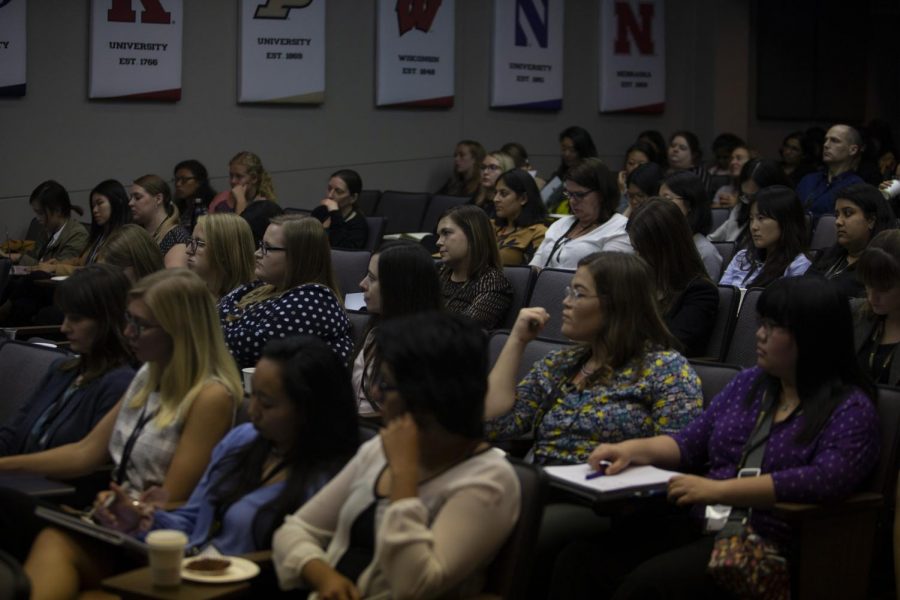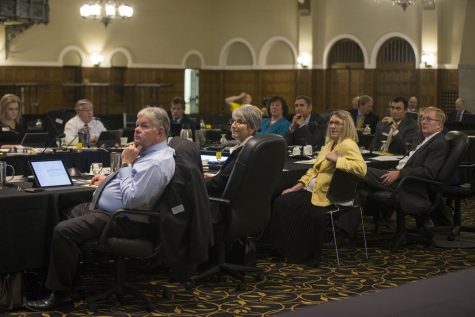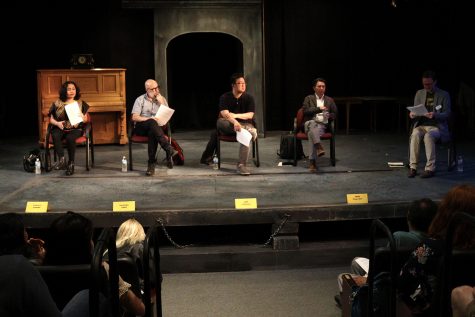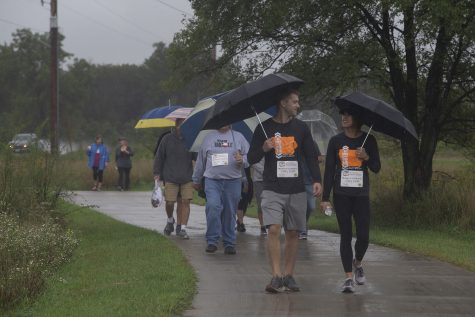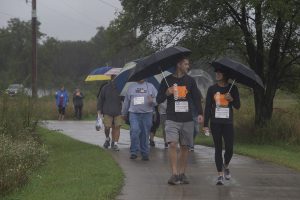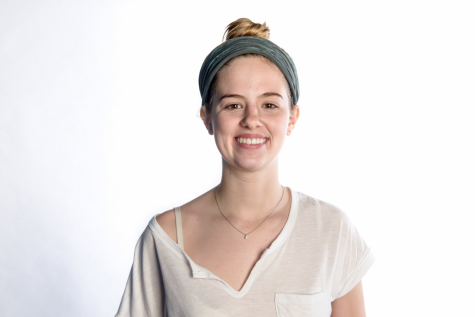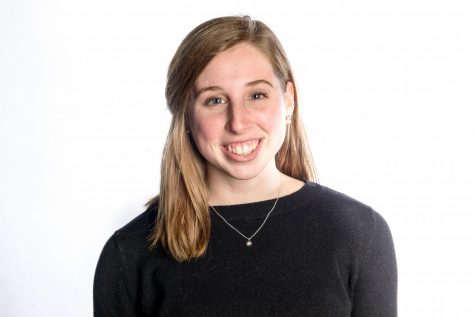Business analytics program battles disparity between men and women in the field
The University of Iowa Business Analytics undergraduate program hosted its first ever Women in Analytics and Leadership conference this weekend. The conference is one of multiple steps the program is taking to attract women at the same rate as men.
September 22, 2019
In an effort to make its business-analytics undergraduate program more equitable, the University of Iowa’s department on Sept. 21 hosted a conference featuring an all-female panel for the first time.
The UI hosted the Women in Analytics and Leadership Conference at the IMU this past weekend with 101 registered attendees from all over the state. The conference began promptly at 8:30 a.m. with an opening address from Tippie College of Business Dean Sarah Gardial.
“Nothing makes me happier than a room full of women saying, ‘What do we do next?’ ” Gardial said to kick off the conference.
Attendees listened to nine women speakers focused on one of three topics: analytics in the real world, career readiness, and/or skills and techniques of the business world.
Business Analytics Department Chair Barry Thomas said there are not enough individuals — men and women — going into business analytics.
According to the Bureau of Labor Statistics, employment of management analysts is projected to grow 14 percent by 2028, which is relatively faster than the average of other occupations. Based on these statistics, demand for business analysts on the job market will likely grow over the next nine years.
RELATED: UIHC honors women’s achievements with month of celebration
“If you look at the national data on this, there’s a number of different sources that talk about the millions of jobs that are out there in analytics,” Thomas said. “Companies — and particularly those that we are working with — are telling us, ‘Wow, we just aren’t getting as many people into this area as we need.’ ”
Thomas said he recognizes the gap between men and women in the field as a great opportunity. To address both of these issues, he said the major must attract women at the same rate it attracts men — which the program is currently working toward, he added. He said the program is composed of 64 percent male and 36 percent female students.
The first step program officials are taking is to make sure the classroom is inclusive, Thomas said. The second is to build a community through the conference and a peer-mentoring program, and the third is to hire more women so that faculty composition reflects the composition of the student body.
Looking forward, Thomas said he also wants to inform high schoolers about the field of business analytics sooner.
“The percentage of women in business analytics went up this year, but we need two for a trend,” Thomas said.
UI junior Aneesa Yousif, a business-analytics major, said the conference inspired her. She said she joined the major after the Tippie Direct Admit Seminar. Despite the disproportion between the number of men and women in the field, Yousif said, she feels welcomed in the program.
“What every speaker has been reiterating is don’t hold yourself back just because you’re a girl,” Yousif said. “I definitely think that’s something we all do subconsciously. We’re like, ‘Oh, there’s a guy here, he’ll take the lead.’ But they’ve really motivated me to stick up for myself, share my ideas, and be involved.”
UI Business Analytics Assistant Professor Tong Wang, a conference speaker, offered many ideas for welcoming women into the major.
“I think this [conference] is a good start,” Wang said. “The other thing I’ve been thinking is that maybe we can invite some successful female alumni back to the campus. They don’t have to be in their middle age and [be] that successful — maybe just someone who has graduated a few years ago. We need more examples to show the girls that they can do well.”



